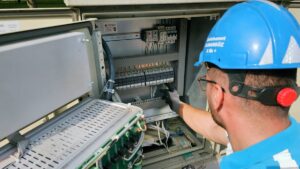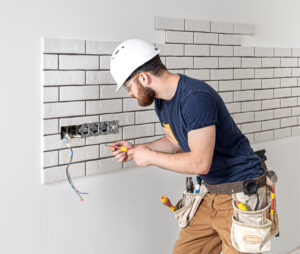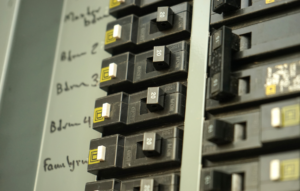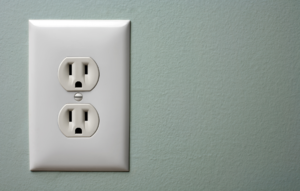In today’s world, energy efficiency is a top priority for homeowners. Not only does it reduce utility bills, but it also helps protect the environment by lowering carbon footprints. One of the key factors in maintaining an energy-efficient home is selecting the right HVAC (Heating, Ventilation, and Air Conditioning) system. In Alabama and Georgia, where CMS Maintenance Service operates, extreme heat in summer and mild winters make HVAC systems essential for comfort and energy savings.
In this comprehensive guide, we’ll explore the best HVAC systems designed for energy efficiency, the factors to consider when choosing one, and how you can ensure long-term savings by making the right investment.
Why Energy Efficiency Matters for HVAC Systems
Choosing an energy-efficient HVAC system can have a significant impact on your home and wallet. Here are a few reasons why it’s important:
- Lower Energy Bills: Energy-efficient systems use less power to maintain the desired temperature, which translates to savings on utility bills.
- Environmental Impact: Reduced energy consumption means fewer greenhouse gas emissions, making your home more eco-friendly.
- Improved Comfort: Modern energy-efficient HVAC systems provide better temperature control and improved air quality.
- Increased Property Value: Energy-efficient upgrades, like a modern HVAC system, can increase your home’s market value.
What to Look for in Energy-Efficient HVAC Systems
When choosing an HVAC system, several factors influence its energy efficiency:
- SEER Rating (Seasonal Energy Efficiency Ratio): This rating measures the cooling efficiency of an HVAC system. A higher SEER rating means better energy efficiency. Systems with a SEER rating of 16 or higher are considered highly efficient.
- AFUE (Annual Fuel Utilization Efficiency): For heating systems, the AFUE rating measures how effectively the system converts fuel into heat. Systems with a rating of 90% or higher are more efficient, wasting less fuel.
- ENERGY STAR Certification: ENERGY STAR-rated systems are independently certified to meet strict efficiency standards. Choosing an ENERGY STAR HVAC system ensures energy savings without compromising performance.
- Proper Sizing: An HVAC system must be appropriately sized for your home to operate efficiently. A system that’s too large or too small will waste energy and lead to inconsistent temperatures.
- Variable Speed Technology: Modern HVAC systems often come with variable-speed motors that adjust the airflow based on your home’s needs, resulting in less energy consumption.
- Smart Thermostat Compatibility: Pairing your HVAC system with a smart thermostat allows for better control over your home’s temperature, further enhancing energy savings by adjusting settings based on your daily routines.
Top Energy-Efficient HVAC Systems for 2024
Now that we’ve covered the basics, let’s dive into some of the best HVAC systems for energy-efficient homes available today.
1. Trane XV20i Variable Speed Air Conditioner
Trane is a trusted name in HVAC, and their XV20i model stands out for its impressive SEER rating of up to 22. This variable-speed air conditioner can adjust its speed based on the current weather conditions, using only the energy necessary to maintain a comfortable indoor temperature.
Key Features:
- SEER rating of up to 22
- Variable-speed technology for optimal efficiency
- ENERGY STAR certified
- Smart thermostat compatibility
The Trane XV20i is ideal for homeowners in Alabama and Georgia looking to reduce their cooling costs while maintaining high comfort levels during the hot summer months.
2. Carrier Infinity 26 Air Conditioner
Carrier’s Infinity 26 offers high efficiency with a SEER rating of up to 26, making it one of the top choices for energy savings. This model also features Greenspeed Intelligence, which allows the system to adjust its output in small increments, saving energy without sacrificing comfort.
Key Features:
- SEER rating of up to 26
- Greenspeed Intelligence for precise temperature control
- Advanced dehumidification capabilities
- ENERGY STAR certified
For areas with high humidity, like Georgia, the Carrier Infinity 26 provides excellent dehumidification, improving indoor air quality while cutting down on energy consumption.
3. Lennox SL28XCV Air Conditioner
The Lennox SL28XCV is another great option, with a SEER rating of up to 28. It’s one of the most efficient central air conditioners on the market and offers superior climate control, making it perfect for homes in areas with fluctuating temperatures.
Key Features:
- SEER rating of up to 28
- Ultra-quiet operation
- ENERGY STAR certified
- Advanced climate control technology
Lennox’s SL28XCV is a top contender for homeowners who prioritize energy savings and minimal noise.
4. Rheem Prestige Series Hybrid Heat Pump
For those looking for a dual-purpose HVAC system, the Rheem Prestige Series Hybrid Heat Pump is a great option. This system provides both heating and cooling with excellent efficiency, making it a perfect choice for the variable climates of Alabama and Georgia.
Key Features:
- SEER rating of up to 20.5
- AFUE rating of up to 98% for heating efficiency
- Hybrid technology for maximum energy savings
- ENERGY STAR certified
With hybrid systems, you can take advantage of both electricity and gas heating, depending on what’s more efficient for your region and climate.
5. Bosch Inverter Ducted Split System
Bosch’s Inverter Ducted Split System offers energy savings by maintaining consistent temperatures with inverter-driven technology. This system modulates energy use based on your home’s needs, making it both eco-friendly and cost-effective.
Key Features:
- SEER rating of up to 18
- Modulating inverter drive
- Ultra-quiet operation
- ENERGY STAR certified
Bosch’s Inverter Ducted Split System is an excellent choice for homeowners who want to combine energy efficiency with whisper-quiet performance.
Benefits of Upgrading to an Energy-Efficient HVAC System
Upgrading to an energy-efficient HVAC system offers several long-term benefits:
- Reduced Energy Bills: Modern HVAC systems are designed to consume less energy, leading to lower utility costs. Over time, the savings can offset the initial cost of upgrading.
- Environmental Impact: Reducing your home’s energy consumption helps lower carbon emissions, contributing to environmental conservation.
- Improved Comfort: Energy-efficient systems provide better climate control, ensuring consistent temperatures and superior air quality throughout your home.
- Increased Longevity: Newer systems often come with advanced technology that reduces wear and tear, extending the lifespan of your HVAC system.
- Potential Rebates and Tax Credits: Many energy-efficient HVAC systems qualify for local, state, or federal incentives, such as rebates and tax credits, further reducing the cost of your investment.
Maintaining Energy Efficiency: Tips and Best Practices
Once you’ve installed an energy-efficient HVAC system, it’s crucial to keep it running efficiently. Here are some maintenance tips to maximize energy savings:
- Regular Filter Changes: Dirty filters restrict airflow, forcing the system to work harder. Replace filters every 1-3 months.
- Annual Inspections: Schedule professional inspections to catch small issues before they become costly repairs.
- Smart Thermostat Usage: Set your smart thermostat to match your daily routine, reducing energy use when you’re not home.
- Sealing Ductwork: Leaky ducts waste energy by letting conditioned air escape. Ensure ducts are sealed properly to maintain efficiency.
Maximizing Comfort and Savings with Energy-Efficient HVAC Systems
Investing in an energy-efficient HVAC system is one of the best decisions you can make for your home. Not only will you enjoy lower energy bills, but you’ll also contribute to environmental sustainability while enhancing your overall comfort. Whether you’re in Alabama or Georgia, CMS Maintenance Service is here to help you choose and maintain the best energy-efficient HVAC system for your needs.









